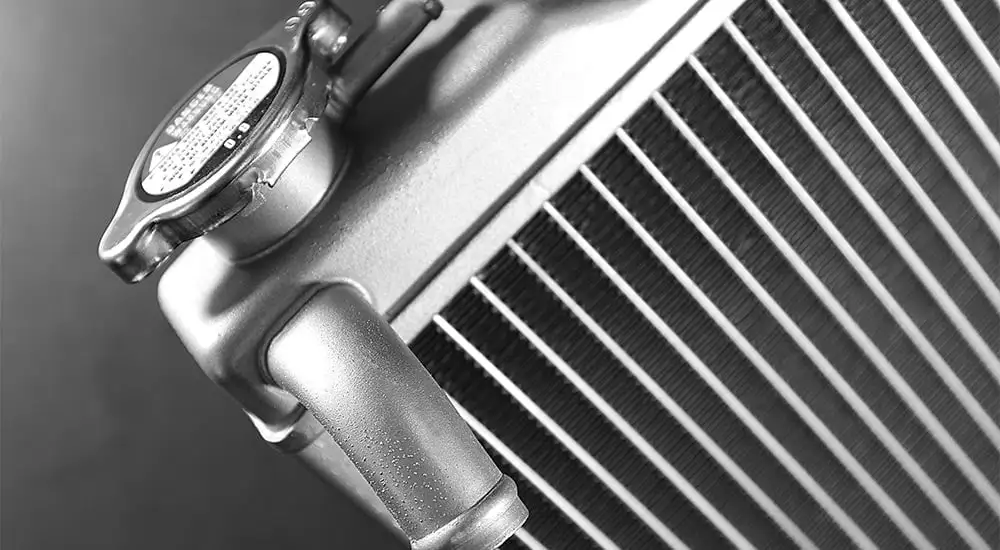A well-functioning heating system is essential for maintaining comfort and warmth in your home, especially during the colder months. At the heart of this system are your radiators, which are responsible for distributing heat throughout your living spaces. Ensuring that your radiators are in optimal condition is key to the overall efficiency and longevity of your heating system. Regular radiator service is an often-overlooked but vital aspect of maintaining your home’s heating infrastructure. In this blog, we’ll explore why regular radiator service is crucial and how it contributes to the long-term health of your heating system.
Why Regular Radiator Service Is Essential
Radiators, like any mechanical component, require regular maintenance to operate efficiently. Over time, issues such as airlocks, sludge buildup, and corrosion can reduce the performance of your radiators, leading to uneven heating, higher energy bills, and potentially even system failure. Regular radiator service helps prevent these issues by ensuring that your radiators are clean, free of obstructions, and functioning as they should.
1. Prevents Inefficiencies in Heating
One of the most immediate benefits of regular radiator service is the prevention of inefficiencies within your heating system. Radiators that are not serviced regularly can develop cold spots due to trapped air or sludge buildup. These cold spots prevent the radiator from heating evenly, leading to rooms that are either too cold or too hot.
By scheduling regular radiator service, a professional can bleed your radiators to remove trapped air, flush out sludge, and ensure that water is circulating properly. This not only improves the efficiency of your radiators but also ensures that your entire heating system is working as efficiently as possible.
2. Extends the Lifespan of Your Heating System
Heating systems are a significant investment, and homeowners naturally want them to last as long as possible. Regular radiator service is a simple and cost-effective way to extend the lifespan of your heating system. By addressing minor issues before they escalate into major problems, regular service helps prevent wear and tear on the system’s components.
For example, corrosion is a common issue that can affect radiators over time. If left unchecked, corrosion can lead to leaks and eventually necessitate the replacement of the radiator. Regular radiator service can identify early signs of corrosion and take steps to mitigate it, thereby prolonging the life of your radiators and your heating system as a whole.
3. Reduces the Risk of Breakdowns
A well-maintained heating system is less likely to experience unexpected breakdowns. Regular radiator service allows for the early detection and correction of potential problems, reducing the likelihood of costly and inconvenient breakdowns. This is particularly important during the winter months when a heating system failure can be more than just uncomfortable—it can also pose health risks.
By investing in regular radiator service, you can enjoy peace of mind knowing that your heating system is reliable and ready to perform when you need it most. This proactive approach to maintenance can save you both time and money in the long run.
4. Improves Energy Efficiency
Energy efficiency is a major concern for homeowners, both for environmental reasons and to reduce utility costs. Radiators that are not properly maintained can significantly impact the overall efficiency of your heating system. For instance, if your radiators are clogged with sludge or airlocks, your boiler has to work harder to heat your home, resulting in higher energy consumption and increased bills.
Regular radiator service ensures that your radiators are clean and operating efficiently, which in turn reduces the strain on your boiler. This means your heating system can heat your home more effectively using less energy, leading to lower heating bills and a reduced carbon footprint.
5. Ensures Consistent Comfort
There’s nothing worse than walking into a cold room when you expect warmth. Inconsistent heating can be a common issue in homes where radiators are not regularly serviced. Cold spots on radiators or inefficient heat distribution can lead to some rooms being much colder than others, making your home less comfortable.
Regular radiator service helps ensure that your radiators are heating evenly and effectively, providing consistent warmth throughout your home. This consistent comfort is especially important in colder climates where reliable heating is essential for day-to-day living.
What Does a Radiator Service Involve?
Now that we’ve covered why radiator service is important, let’s take a closer look at what a typical radiator service involves. While the exact steps may vary depending on your system and the service provider, here are some common components of a radiator service:
1. Bleeding the Radiators
Bleeding is the process of releasing trapped air from the radiator. Air can enter the system over time, leading to cold spots that reduce the radiator’s efficiency. Bleeding the radiators ensures that they heat evenly and fully.
2. Flushing the System
Over time, sludge and debris can build up inside your radiators, reducing their efficiency and leading to potential blockages. A professional radiator service may include a power flush, which involves forcing water through the system at high pressure to remove sludge and debris.
3. Checking for Leaks
Leaks can cause significant damage if left unchecked. During a radiator service, the technician will inspect your radiators and their connections for any signs of leaks and will address them promptly.
4. Inspecting for Corrosion
Corrosion is a common issue in older radiators and can lead to leaks or even radiator failure. A radiator service includes a thorough inspection for signs of corrosion, and steps can be taken to prevent further damage.
5. Testing the Thermostatic Radiator Valves (TRVs)
TRVs allow you to control the temperature of individual radiators. During a service, the TRVs will be tested to ensure they are functioning correctly, providing you with precise control over your heating system.
Conclusion
Regular radiator service is an essential part of maintaining your home’s heating system. By investing in routine maintenance, you can improve the efficiency of your radiators, extend the lifespan of your heating system, and reduce the risk of unexpected breakdowns. Moreover, regular service ensures consistent comfort in your home and helps you save on energy costs by improving overall system efficiency.
Don’t wait until you encounter problems with your radiators—schedule regular radiator service to keep your heating system in top condition. This proactive approach will pay off in the long run, providing you with a warm and comfortable home for years to come. Read More



